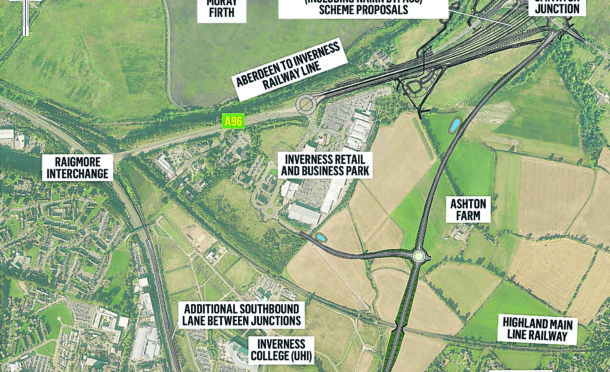Work on the long awaited Inverness East Link to connect the A9 with the A96 could start as early as next month.
The Northern Ireland-based Causeway Geotech Ltd was awarded the £260,000 contract to start work on the route.
The project could cost up to £35 million and will run from Inshes to Smithton and when completed will connect with the recently opened West Link.
Highland Councillor Carolyn Caddick warmly welcomed the move: “It is good that they are serious and it will show we are getting progress instead of consulting.”
Mrs Caddick said: “Some people think we don’t need it but Inverness is moving so fast we will certainly need it in the coming years.”
“I am pleased that they are starting the groundwork, we waited so long for them so I am pleased that they are moving so quickly.”
She added: “I would be interested in seeing which route they will go for but the East Link is a good thing.”
Transport Minister, Humza Yousaf, revealed the final route options would be defined by the work of the conducted by Causeway Geotech.
He said: “This ground investigation contract will help inform the design work for this new link road in the Highland capital.
“Road users and local communities will be kept informed of our plans and we will endeavour to ensure that any disruption is kept to a minimum.”
After public consultations the “preferred route” was announced at the end of last October with Highland Councillors also satisfied with the proposals.
At the time Mr Yousaf said East Link would improve access to jobs and education at UHI’s Inverness Campus while opening up the east of the city to more development.
The funding comes from the £315 million Inverness and Highland City-Region Deal with the Scottish Government that has already seen the opening of the West Link.
On completion of the East Link will make it possible to travel from the A96 Aberdeen road to the A82 Fort William road without going through Inverness city centre.
Work on the 1.5 mile-long stretch between Inshes and Smithton is expected to start early in the next decade after a full statutory consultation in 2019.
